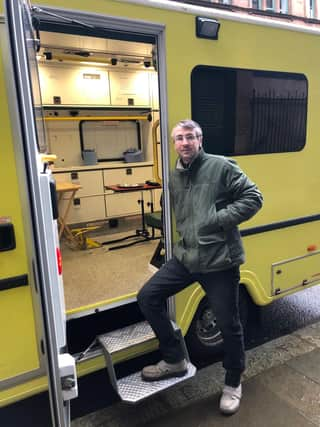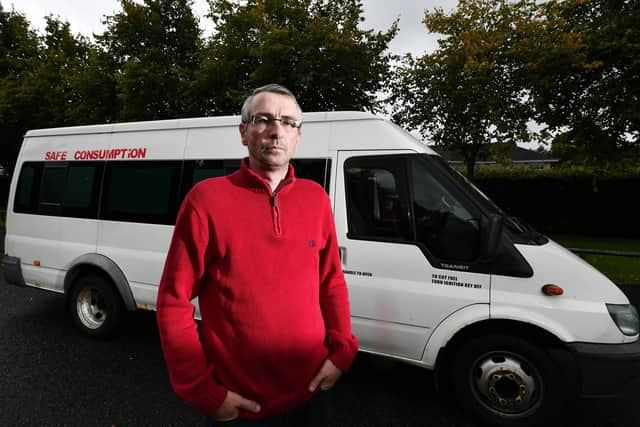Campaigner Peter Krykant's drugs consumption van to be moved to England


Activist Peter Krykant set up his DCR - or Overdose Prevention Centre - in a Ford Transit van in September 2020 in response to the country’s spiralling drug death rate. Later, he upgraded to the ambulance. For nine months, the vehicles - equipped with naloxone, the antidote to an opioid overdose, and a defibrillator - sat close to an alley where street users congregated.
At first, the service - which some claimed was illegal - attracted hostility from police and politicians; but in the end it was allowed to operate and - through his work - Krykant helped keep the mounting death toll in the public eye.
Advertisement
Hide AdAdvertisement
Hide AdNow, the ambulance is being passed to the Bristol-based Transform Drug Policy Foundation, and its Anyone’s Child campaign, which will be taking it on a tour of the UK.


The ambulance has already visited Holyrood. Transform plans to take it to Westminster and the Senedd Cymru as well as to public events in the worst-affected communities across the UK. The first such event will be in Leeds on September 28.
“Families from our Anyone’s Child project will be involved,” said Martin Powell of Transform. “These are families who have lost loved ones and who have been harmed by the current approach to drugs.
“We will engage with the public and politicians, and explain how a health-led approach, including Overdose Prevention Centres, benefits everyone, with the ambulance set up just as it has been used in Glasgow. While it will not be used to supervise injections, we will be exploring other ways it can support measures to reduce drug harms in future.”
Krykant said passing the ambulance to Transform was the next step in pushing for wider drug policy changes. “Having the ambulance in the hands of this organisation will help deliver a health response to a health issue,” he added.
The hand-over comes as Krykant, a former heroin addict, starts a new job with another English charity, Cranstoun. CEO Charlie Mack said his lived experience alongside his record as a “doer and an activist” meant he would play an important role there.
Though welcomed by campaigners, these developments mark the end of the mobile DCR in Scotland.“While it is great Peter has this opportunity, it’s a shame his project will fall into abeyance,” said Labour MSP Paul Sweeney, who volunteered at the van/ambulance. “He demonstrated the sky didn’t fall in, so it would be good to see charities here follow his lead.”In other countries, civil action like Krykant’s has led to legislative change and permanent facilities. In Denmark, the mobile DCR that acted as a catalyst is now in the national museum.Powell said, when not touring, Krykant’s ambulance would be offered to UK museums as an exhibit.“In the long run, we would be happy if it ended up on display in Glasgow as part of the history of the city’s move towards a network of fully-fledged official DCRs.”